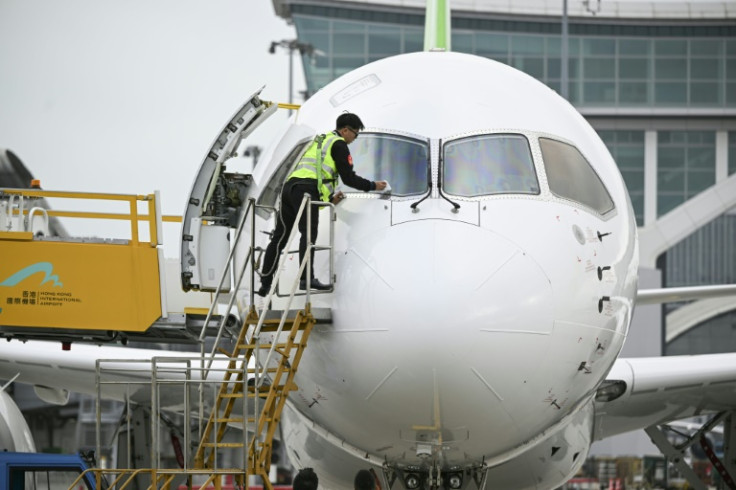
135 migrants are set to arrive in Costa Rica on Thursday after being removed from the United States, as the Central American nation becomes the latest to accept deportees from third countries.
Most of the deportees hail from Asian nations such as China, Afghanistan, China and Pakistan, NBC News reported. About half of all arriving are Children, said Omer Badilla, Costa Rica's deputy minister of the interior and police. None have criminal records but all entered the U.S. unlawfully, authorities added.
Badilla justified the decision "because of our history and our customs as human rights protectors." Moreover, Costa Rican President Rodrigo Chaves said the decision seeks to help its "economically powerful brother from the north."
"If they impose a tax in our free zones, it'll screw us," Chaves said. "I don't think they'll do it, thank God ... love is repaid with love ... 200 will come, we treat them well and they will leave," he added.
The migrants being sent to Costa Rica are mostly from countries for which repatriations might take longer to process. According to The New York Times, they will be sheltered in a facility in the canton of Corredores. Although it is not clear how long deportees will have to wait before being repatriated, the Costa Rican government confirmed that it intended to "serve as a bridge" for them to return to their countries of origin.
Additionally, the Central American country announced that the repatriation process would be fully funded by the U.S. government and supervised by a United Nations agency called the International Organization for Migration.
Panama was the first nation in Central America to accept U.S. deportees from third countries. As of last week, the country had already received three U.S. deportation flights carrying migrants from countries in Asia, the Middle East, and Africa.
The situation in the country has proved controversial after a report by The New York Times showed them staying under harsh conditions that even led to an attempted suicide. The outlet detailed that migrants who arrived on the deportation flights were stripped of their passports and most of their telephones, and then locked in a hotel, barred from seeing lawyers. They were told they would soon be sent to a camp near the Panamanian jungle.
"Only a miracle can save us," Artemis Ghasemzadeh, a migrant from Iran, told The Times through a hidden cellphone. Panama barred journalists from visiting the migrants, but The Times was able to contact some people inside the hotel, all of whom said they were asylum seekers being held against their will.
Panamanian Security Minister Frank Ábrego told press on Wednesday that U.S. authorities had in fact taken migrants' phones, but claimed they were returned to them on arrival so they could communicate with their families. He added that they were prevented from leaving the hotel "for their own protection," and that authorities are organizing logistics both for those who accepted to be taken back to their home countries and the ones who don't want to. They have a right to apply for asylum in Panama, Abrego said, clarifying that the country has not done it nor it is planning to do so.
Migrants were later relocated. Local press saw people leaving the Decapolis Hotel in Panama City and getting on buses. A family member of an Iranian woman who is in the country told CNN that others had already been taken elsewhere.
© 2025 Latin Times. All rights reserved. Do not reproduce without permission.









